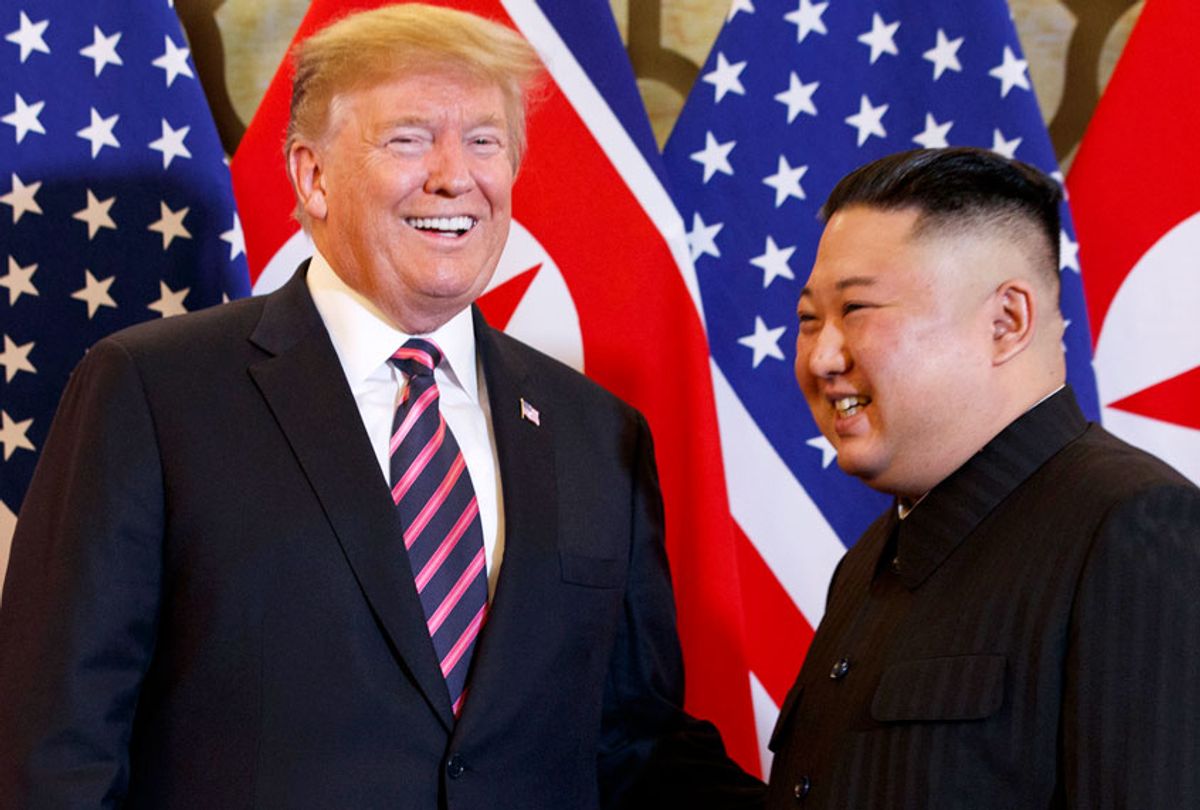President Donald Trump may have trouble resuming peace talks with North Korea after satellite images revealed the country has started rebuilding parts of a facility once used for testing long-range missile engines.
The Tongchang-ri satellite launch facility, which North Korea had previously used to test long-range missiles until it had been left dormant as of August, has resumed activity, according to CNN. Two organizations that focus on monitoring North Korean activities, the Center for Strategic Studies' Beyond Parallel project and 38 North, have said that they've recently observed activity at the facility.
The timing of the new activity is particularly noteworthy. According to 38 North, the despotic nation's efforts to rebuild Tongchang-ri's launch pad and missile engine test stand began between February 16 and March 2. Because Trump's summit with North Korean dictator Kim Jong-un in Hanoi ended on February 28 — and did so without any kind of deal, and with Trump expressing deep dissatisfaction over the outcome — there could be a correlation between North Korea's recent military actions and the rebuilding project. It is unclear whether the rebuilding prompted Trump to walk out or began as a result of the Hanoi summit collapsing.
"If North Korea does something they want us to know, they would say it. They haven't said anything," Joseph Yun, the State Department's former special representative for North Korea policy, told CNN. "We don't know enough to say one way or the other. My own guess is it's too early to think that this is a response to happen in Hanoi."
There were concerns prior to the Hanoi summit that Trump's efforts to create peace with North Korea would ultimately fail.
"I think the best case scenario is we come away with an agreement similar to what we've seen in the inter-Korean accords, where we have a work plan for a short-term period that lays out some very concrete steps for both sides," Jenny Town, research analyst at the Stimson Center and managing editor and producer of "38 North," told Salon last month. She also said that the worst case scenario would be that "we come away with no substance and only a reiteration of political will," which would be perceived "largely as a failure."
As far back as last year, experts were predicting that Trump would not be able to achieve last concessions from the North Koreans, an impression that seems to have been confirmed by the rebuilding of the site.
"The challenge, for President Trump, will be that at the end of the day, even if he goes through with the summit, it's very unlikely that the North Koreans will agree to make significant concessions related to their nuclear program," Jamie Fly, a foreign policy expert with the German Marshall Fund who served as foreign policy adviser to Florida Sen. Marco Rubio during the 2016 presidential campaign, told Salon in April. "Previous administrations have been through this cycle of escalation and negotiations in the past, and it hasn't produced any significant change in the trajectory of North Korea's weapons of mass destruction or its missile programs."
He added that if Trump "comes out of the summit without any significant offers by the North Koreans, I think he's going to face a tough choice pretty quickly of whether he continues the pressure campaign through additional sanctions and economic pressure. But given his rhetoric in the past, he may have to face expedited consideration of various military options."



Shares